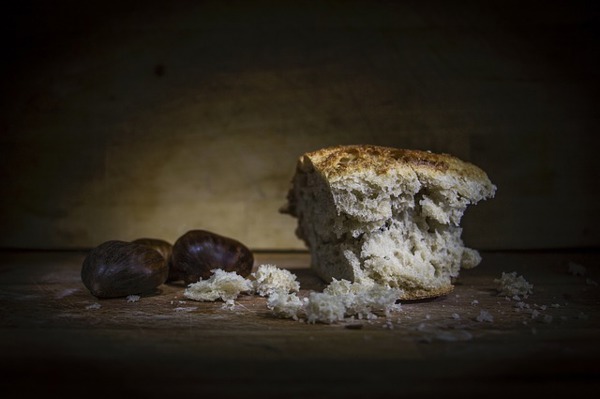Breaking Bread with Refugees
Precious memories of our shared humanity
Date Posted:
19-Jun-2017

On a Friday night recently, I was part of a dinner party with a group of 10 or so refugee men and a few women who had been befriending them. Some of these men were employed in a meat processing plant. Most of them have no work and relied for support on other refugees and friends in the local parish and community.
During the evening conversation focused on stamina required to work in meat processing, poverty, and concerns about impending deportation and work visas. A lot of fear and anxiety was shared, especially about family members at home far away who were being harassed and taken for questioning. Messages from relatives, urging the asylum seekers not to return home, were compounding an already tense and worrying situation.
That night my mind traveled back to other precious moments when I shared food, drink and conversation with those seeking asylum and a safe refuge.
My initial introduction to refugees and asylum seekers was Kakuma refugee camp, Kenya on the border of Sudan. I was to be the camp counselor.
As soon as I arrived at the camp, by UNHCR plane from Wilson airport in Kenya, the UNHCR lawyer met me and asked me to accompany him to the camp hospital (a tent). Recently there had been a spate of hunger strikes and deaths that the UN was hoping to curtail. My task was to prevent the death of the refugee lying on the dirt floor. He was refusing to eat and getting weaker as the days passed. I remember kneeling down beside him and hoping that I did not faint from the shock of the experience and the poverty of the situation in which I found myself. I encouraged him to break his fast and sip some milk from a teaspoon that I was dipping into a cup. This was my first sharing of food with a refugee.
On other more pleasant occasions in Kakuma, I was invited to share coffee and small eats with refugees from Eritrea This partaking of food and drink was a ritualistic ceremonial. Green coffee beans were roasted, ground with pestle and mortar, slowly immersed in boiling water and loaded with lots and lots of sugar. “Black as pitch, hot as hell and sweet as a woman” they would say-not for children or wimps. All food was eaten from a common dish with our hands. I can still remember the aroma, the taste and the inevitable anxious conversation around getting accepted into another country preferably USA. Usually water was boiled in the sun and a good deal of cooking was solar. Wood given for cooking by UNHCR would then be traded for coffee beans and other luxuries.
.jpg)
Another meal that is etched in memory was at Christmas Island Detention Centre. It was shared with a group of Vietnamese asylum seekers. It was a Last Supper experience. The group was to be deported early the next morning as they were labelled economic refugees and not considered eligible for Australian protection. They were extremely poor. I could tell from their yellow broken fingers and toenails, their gnarled hands and general physical appearance. The men were hoping to get enough money to send their children to school. The smugglers had assured them that they would be welcomed and get work in Australia. Needless to say this did not happen. We talked a lot about their disappointment, shattered hopes and shame at having to face their families destitute; despite the fact they had risked everything to try to help. Money was still owed to the smugglers and government officials would have to be faced on return. Imprisonment was a real possibility. Despite trying to be upbeat, I cried all the way home.
Another precious moment of sharing happened at Curtin Detention Centre, Western Australia (now closed). It was a very hot day and I was visiting a refugee who was very disturbed. We sat together in the sun for a long time, neither of us talking. Then to my surprise my companion broke the silence and asked, “Would you like a drink of water?” In all his pain and inability to articulate his own emotional, mental and physical pain, he was thinking of my needs. It was a reversal of the Woman at the Well experience and I left the Centre that day feeling refreshed and blessed.
We all know that it is a hard time to be seeking asylum or permanent residence as a refugee in Australia or any country for that matter. It is a long time gone since one only had to rap the knocker on the door of a convent, monastery or cathedral precinct to be given instant asylum, invited to share whatever food and drink was prepared and assured of a safe passage to freedom.
Maybe the day will come again when doors will again have knockers for asylum seekers and everyone will be invited to come in and to share whatever banquet is prepared. May that day come sooner rather than later.
- Valda Dickinson rsm
Article image: Christmas Island Detention Centre. CC 2.0
